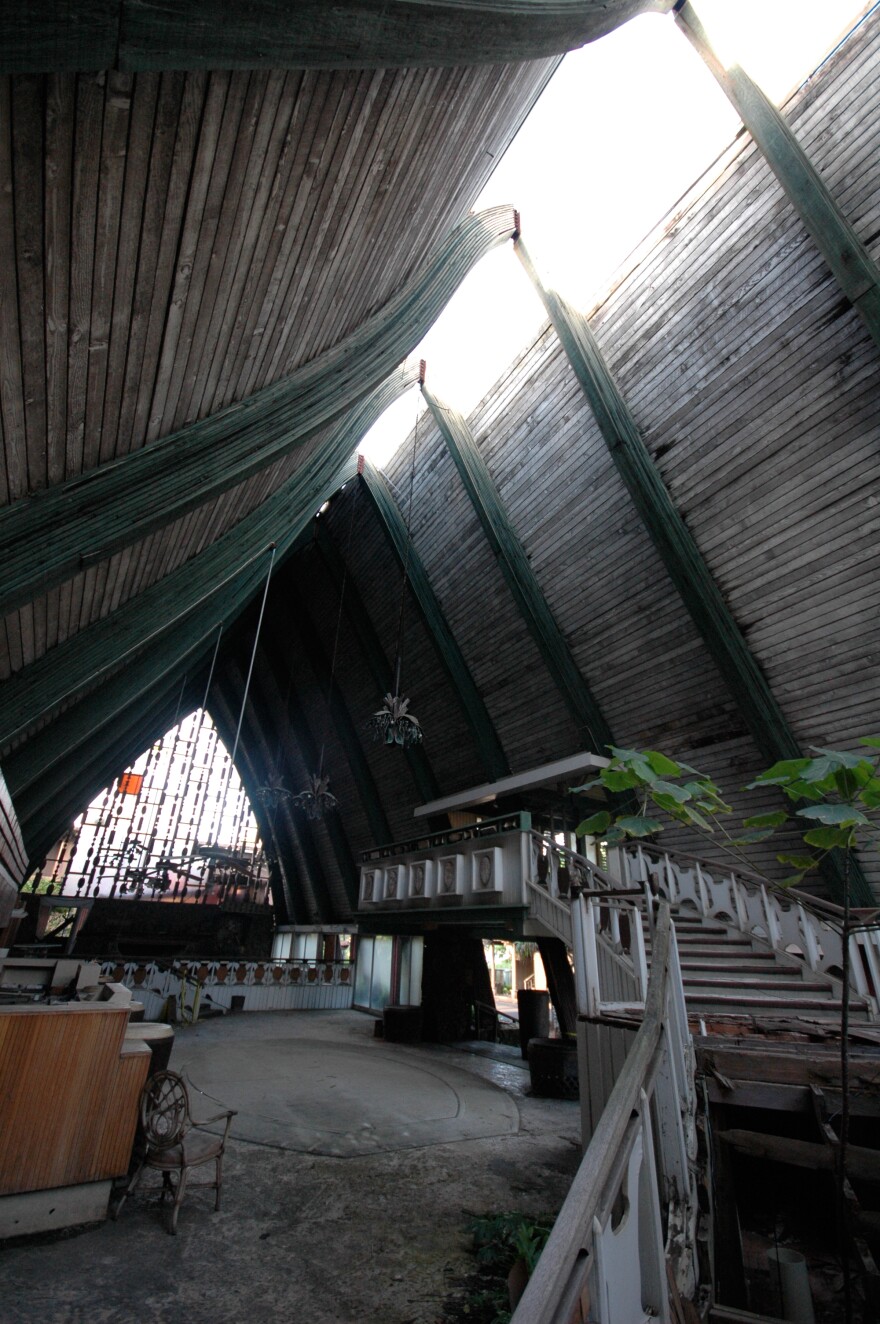Once a Hawaiian playground to movie stars now sits the dilapidated ruins of the Coco Palms Resort on Kauaʻi.
Attempt after attempt to renovate the resort in Wailua have failed ever since Hurricane ʻIniki destroyed the site in 1992, and controversy continues to surround the latest attempts of redevelopment.
The state Department of Land and Natural Resources is currently investigating alleged lease violations, Board Chair Dawn Chang told the Kauaʻi County Council Wednesday.
The state Historic Preservation Division and the Office of Conservation and Coastal Lands, which are both part of DLNR, are two of the investigating entities.

"They have conducted site inspections, they are looking through files and documents conferring," Chang said. "I want to make sure that we are coordinated internally — all of the divisions — before a final recommendation is made, but I will assure you that they are timely proceeding on the investigation."
The Coco Palms property sits on both private and state-owned lands.
The state parcels were issued on a 65-year lease in 1984, Chang said. As of April 21 of this year, DLNR has sent a notice of default to the now-defunct Coco Palms Ventures LLC, with six potential provision violations.
Among the alleged violations include failure to pay county real property taxes, cutting down 77 healthy palm trees without consent, no annual reports, and failure to get written approval for reassignment of the lease.
"We have a specific provision in our lease that requires that anytime you assign or you transfer the lease, it must be with consent by the Board of Land and Natural Resources," Chang said.
According to Chang, the last time the board approved a lease reassignment was in 2018.
"We understand that the lease may have been assigned at least twice without the board's consent," she said.
Chang said the board is waiting to hear back from the attorneys of the property, and are "giving them an opportunity to respond or to cure that."
The current plans for the development include a 350-room hotel from RP21 Coco Palms LLC, which has been met with continued opposition and lawsuits.
The property was last sold at a foreclosure auction in July 2021 for $22 million to Reef Capital Partners, a Utah-based real estate investment firm that originally invested in the also defunct Coco Palms Hui LLC.

Council Chair Mel Rapozo, in a surprising moment at the meeting, said he’d like the council to pursue eminent domain on the private property.
"With condemnation comes the real market value that we got to pay. I'm committed to finding the money," Rapozo said. "You know, we can put some CIP (capital improvement) projects on the side for a little while, we can tap our reserves, we can ask our state for help with legacy lands, public trust land."
Local attorney Mauna Kea Trask who represents RP21 Coco Palms LLC, said owners would agree to sell for $22 million, the original investment and a third of its assessed $65 million value.
"The reason why they need $22 million is because that was the note and the money that was lent for this project was a former pension fund for firemen, police officers and other government employees," Trask said. "That's why they need that money back. The reason why they're pursuing development of this project is because they need to make that money back for that purpose."
Residents have spent years saying a hotel is not suitable in this area. Among complaints are traffic, proximity to the coastline, and its cultural significance.
How a resort can even be built in this area protected by shoreline setbacks goes back to the ʻIniki Ordinance. After the ordinance's name-sake hurricane tore through the island in 1992, county lawmakers passed legislation to allow homeowners, businesses and resorts to rebuild what they had before.
Development of the lands Coco Palms is on were grandfathered in much later. That ordinance has since been repealed.
In a written response, County of Kauaʻi Managing Director Michael Dahilig said the administration will review any proposals thoroughly before taking any public position on condemnation.
“Given past approvals granting development property rights, these issues need to be sorted out both from a legal standpoint considering condemnation is a rarely used power, and whether the community believes spending a large amount of taxpayer resources is best suited to buyout the permits and land," Dahilig said. "We are always open to dialogue with our partners at the County Council..."






